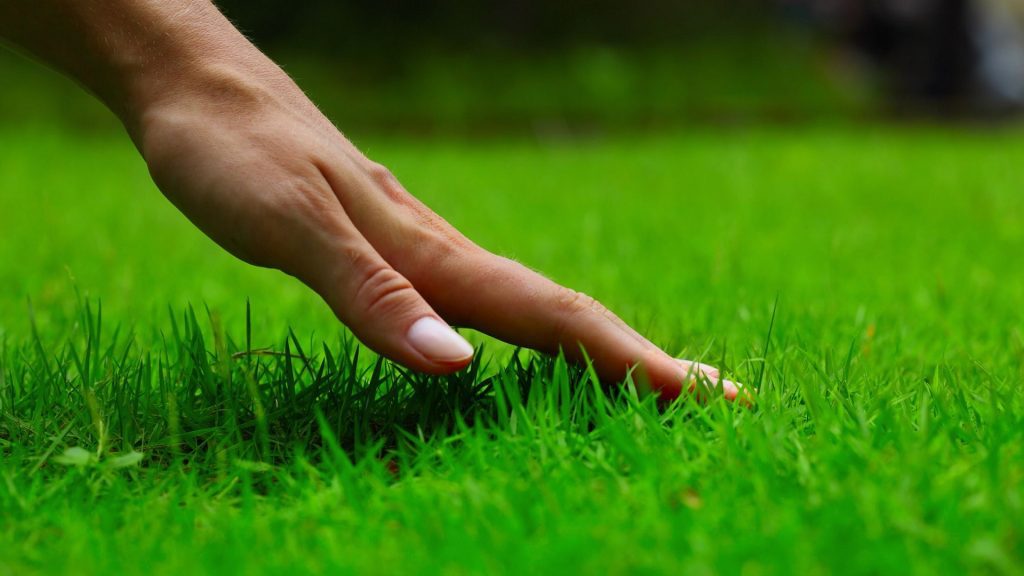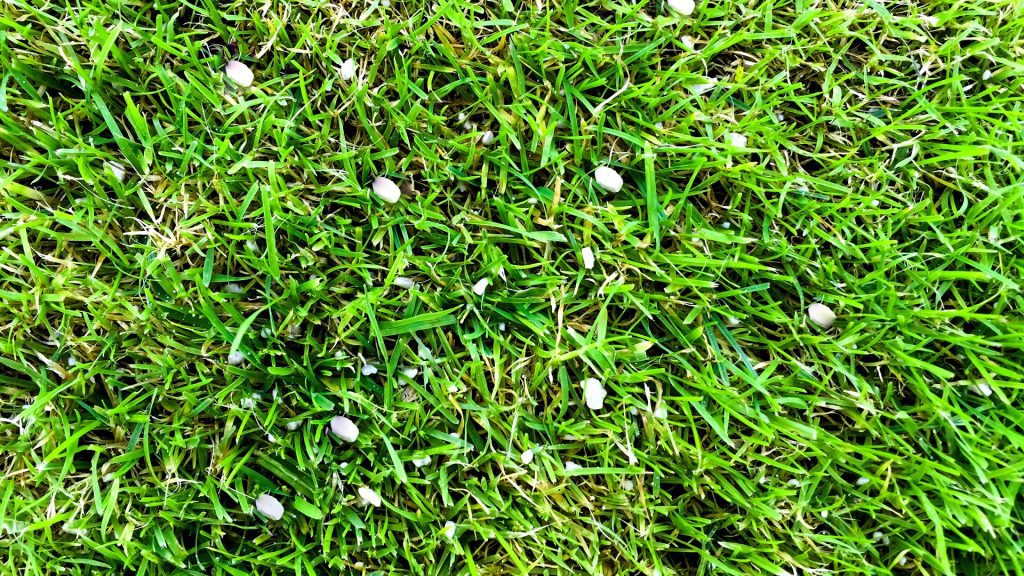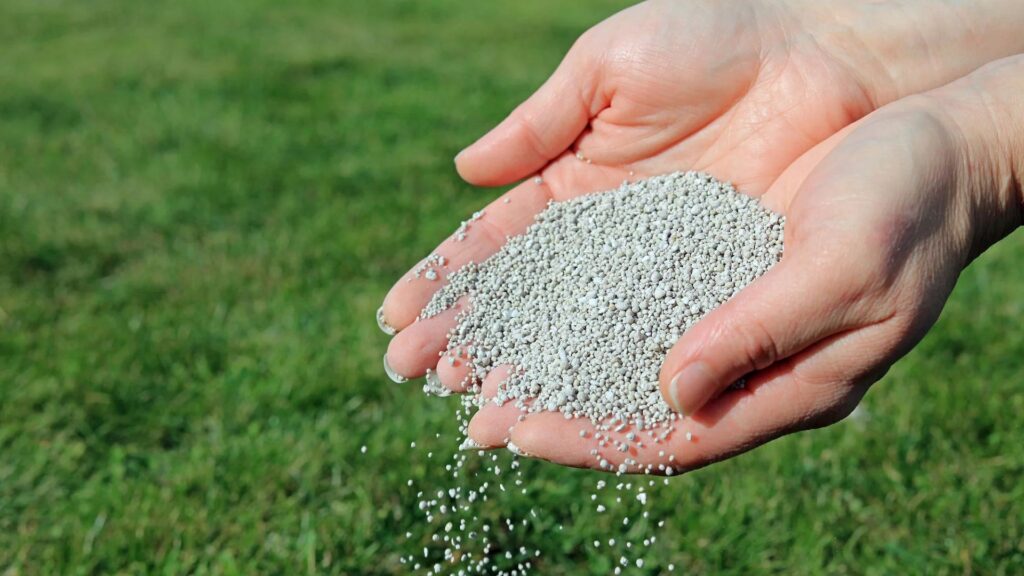
Your Guide to All Types of Fertilizers
Plants are simple creatures that require not much more than sunlight, water, and food to stay happy.
Fertilizer is the best way to feed your plants what they need, but if you’ve never delved this deep into gardening before, trying to figure out what type of ingredients to look for is daunting.
What are the different types of fertilizers? Fertilizers come in different forms including liquid and granulated, slow-release of fast-acting, and with varying ingredients that dictate what they’re best for. There are fertilizers formulated for grass growth, flowers, vegetables, houseplants, and just about any purpose you need them.
Fertilizer should be chosen predominantly to suit the plant that it’s feeding, whether it’s a root vegetable or a spring flower, as well as the preferences of the gardener.
With that in mind, we’re here to discuss all the different types of fertilizer and what each of them is best for in your garden, so you’ll never have to wonder again.
Fertilizers By Origin
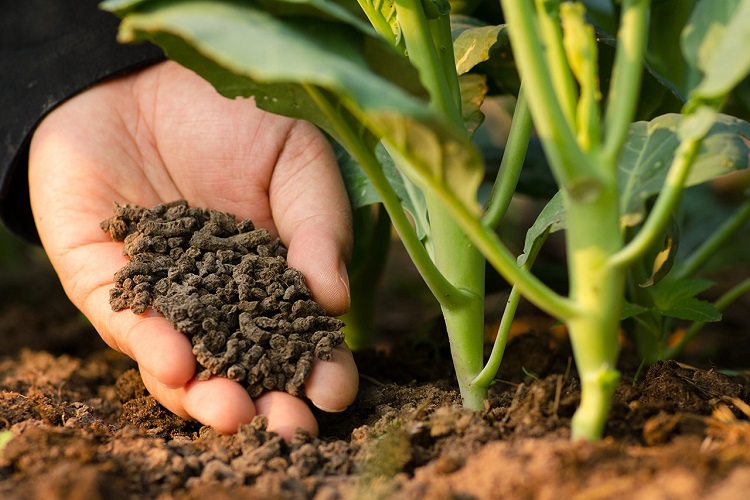
One of the biggest debates ongoing in the world of gardening is whether organic or mineral fertilizers are best.
With different compositions and different functions, you might use both in your garden, and each of them has good and bad to offer.
Organic Fertilizers
Organic fertilizer is one comprised of naturally produced ingredients, including mined rock, animal manure, and plants.
With the world becoming more focused on using natural goods, especially in gardening, people have been using organic fertilizers more now than ever.
Organic fertilizer is intended to feed the plants but also to fix the soil’s health, and for this reason, some prefer it.
There are organic fertilizers for all types of plants and purposes, including grass growth, vegetable gardens, and everyday houseplants, so they can be used to do just about anything.
Pros
- Actively improves soil structure as well as nourishes the plants.
- Using organic fertilizer is better for the planet and a must for eco-friendly gardeners.
- These fertilizers release nutrients slowly and work for longer periods from one application.
Cons
- The price of organic fertilizer is sometimes twice what you’d pay for a mineral one.
- Using natural ingredients means the results sometimes aren’t as impressive as mineral fertilizer.
- You’ll wait longer to see results than you would when using a mineral alternative.
Mineral Fertilizers
A mineral fertilizer sometimes called a chemical or synthetic fertilizer, is one that features ingredients not fully built on natural ingredients.
The most common ingredients in these fertilizers are nitrogen, potassium phosphorus, and sulfur, which can still be sourced naturally, and they come in a form that makes them readily available for plants to absorb.
Mineral fertilizers are the most common type between the two because of their efficiency and accessibility.
These fertilizers are formulated to suit all plant types and requirements, depending on what the gardener requires, with a focus on plant nourishment and sometimes improving the soil.
Pros
- Mineral fertilizers are far more affordable and accessible
- Unless using a slow release product, you’ll get fast results within just a couple of weeks.
- It’s easier to assess these products and their ingredients thanks to the universal labeling system.
Cons
- Some of these products can cause toxic buildup on your plants and wash into your soil.
- Not as good for soil structure as an organic fertilizer, and more about feeding the plants.
- You can easily overdo it when applying mineral fertilizer which ends up damaging the plants permanently.
Fertilizers By Nutrients
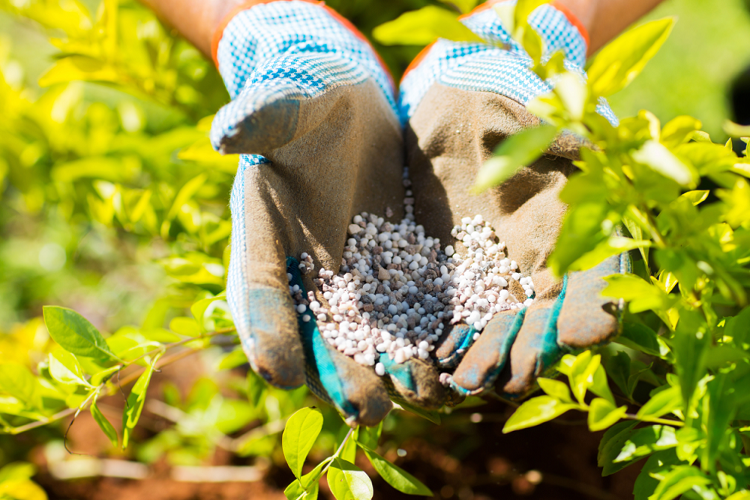
The nutrients within a fertilizer will have the most impact on its effectiveness and the big three of nitrogen, phosphate, and potassium are the most commonly found.
Whether you choose just a single nutrient or a blend, it’s good to know what each of them can do for your plants.
Nitrogen Fertilizers
Nitrogen fertilizers are the most common because nitrogen is the most important nutrient for plants, absorbing far more of it than anything else.
With nitrogen, plants are able to create protein and remain healthy, so you’ll usually find fertilizers contain at least some of it. Strictly nitrogen fertilizers are also popular, but may not be right for every garden.
Pros
- One of the best treatments for grass and plants that need to improve their greenness.
- Helps with the fast growth of plants and results can be seen in a couple of weeks.
Cons
- If you have products like wood compost and mulch, your plants may not be able to absorb nitrogen fertilizers.
- Too much nitrogen can prevent root, flower, and fruit growth while it promotes only foliage growth.
Phosphate Fertilizers
Phosphate is another crucial nutrient for a plant to have and this one is linked to how well it uses and stores energy, so it’s vital to its health.
Without phosphate, a plant won’t develop as it should and may not be able to undergo photosynthesis, so many fertilizers will feature some form of phosphate rock in their formula.
Pros
- Phosphate is often found in flower-friendly fertilizers because it assists with blooming.
- Can boost the health of the root of the plant and not just the foliage.
Cons
- Too much phosphorous can cause pollution in the water, which causes algae and bacteria growth.
- Phosphorus is the most commonly over-fertilized nutrient so it requires a more careful approach.
Potassium Fertilizers
Potassium-rich fertilizers are dedicated to improving the quality of a plant, the crop yields, and how well it can fight off disease.
You’ll also find potassium in fertilizers designed for extreme weather conditions as it prevents wilting and strengthens the roots, making it a good all-rounder for all types of plants.
Pros
- Applying potassium to your plants will make the fruit taste sweeter and the flowers look brighter.
- Plants and climates that are prone to disease will be protected from a hefty dose of potassium.
- This is one of the more affordable fertilizers and is available in bulk amounts.
Cons
- Overdoing the potassium by just a little will kill your plants and you’ll need to start all over again.
Fertilizers By Form
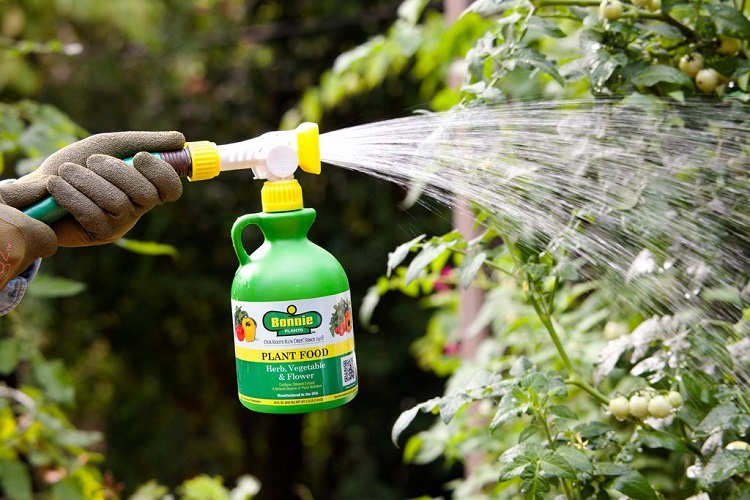
The next category you’ll need to consider when shopping for fertilizer is what form you want it to take.
The most common are liquid, powder, and granulated fertilizers, and depending on what you’re growing, there’ll be one out there that’s a perfect match.
The form of the fertilizer also impacts how it reaches the plant, which means some are fast-acting, slow-release, or a bit of both.
You’ll also have to think about the effort you want to put into applying the fertilizer and if other tools are required, so this part of the fertilization process has a huge impact.
Liquid Fertilizers
As the name suggests, a liquid fertilizer comes in a liquid form, and this can be either a concentrated formula that requires water to be added to it or as a direct application product.
A liquid fertilizer might be applied to the soil surrounding the plants or sometimes directly onto the foliage.
Gardeners enjoy using liquid fertilizers for their no-fuss approach, with many being able to connect to a garden hose and be sprayed on.
They’re better used as a starter spray and more for treating the plant itself rather than the soil underneath. Using organic liquid fertilizer is needed if you want to improve soil structure as well.
Pros
- There’s a minimal effort on your part as these fertilizers are sprayed directly onto the plants with no mixing required.
- Liquid fertilizers are consistent with every single drop featuring the same amount of nutrients.
Cons
- They’re the most expensive usually of the three types of fertilizers because you’re paying for convenience.
- Once they’re opened, a liquid fertilizer will start to degrade and eventually go bad so their shelf life isn’t as good.
Powder Fertilizers
Powdered fertilizers are a dry form of fertilizer that comes in a packet, and can be worked into the soil or placed directly on top of it.
These products are highly concentrated and able to fit a large number of nutrients and ingredients in them while still being lightweight and compactly packaged.
The two common types of powdered fertilizers are those intended to be applied as they are and others that can be mixed with water to create a liquid fertilizer.
They feature a high concentration of ingredients and are considered a more versatile option to suit more types of plants and purposes.
Pros
- You’ll pay less for a powder fertilizer simply because the packaging costs are less and the product is lighter, even though it’s highly concentrated.
- A powder fertilizer will stay put in your garden shed for years without going bad, as long as it’s not opened.
Cons
- Having to mix up a fertilizer with water or carefully coat your plants means it’s not as convenient as some of the others.
- Some powdered fertilizers can clump and the entire product might not be as consistently good as the rest.
Granulated Fertilizers
Granulated fertilizer is one that comes in small, hard granules or pellet shapes and works for both plants and grass.
Unlike a powder that can be mixed or dusted on, these are delivered as-is to the soil, usually featuring a slow-release design that offers a gradual feeding of nutrients to your plants.
The application of granulated fertilizer can be done by hand in small amounts or using some sort of broadcaster to spread them more widely.
Sometimes, the granules are placed on top of the soil surrounding the plants and other times worked into it, depending on the recommendations.
Pros
- The slow release nature of granules means your garden continues to be fed what it needs for longer.
- They’re relatively mess-free unlike powders and liquids, so the job is easy to do.
Cons
- If covering large areas, these usually require some sort of broadcast tool to get the job done.
- Slow acting formulas as the granules break down mean these aren’t good for anyone wanting quick results.
Fertilization for a Happy Garden
A carefully chosen fertilizer is one that suits the plants you’re feeding as well as your preferences as a gardener.
With the right fertilizer that ticks all of these boxes and a commitment to a regular feeding schedule, you’ll see your garden flourish like never before.
Related Questions
Fertilizer can be a gamechanger for gardens and grass that have never had any before, and it’s a simple way to see real results.
If you’re trying to determine what fertilizer is best for your plants, we’ve answered a few questions that can give you even more information.
What Is an All-Purpose Fertilizer?
All-purpose fertilizer products are designed to suit a wide range of plants and usually feature a combination of nitrogen, phosphorous, and potassium.
These three, also referred to as NPK, are the core chemicals that most plants need to thrive, and using one of these general fertilizers can help deliver them.
What is a Good NPK Ratio?
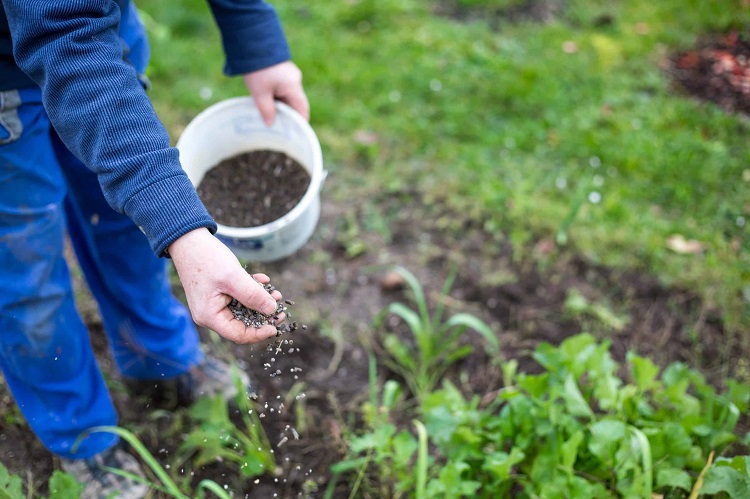
The NPK ratio of a fertilizer dictates what plants it’s best for, and most gardens will find a 3-1-2 ratio to be sufficient.
However, you should assess the soil’s nutrients and what plant is growing before determining which fertilizer is the right match, as this common ratio might not be suitable.
How Often Should You Fertilize?
Each fertilizer product has different requirements for the volume and frequency of fertilization and it is possible to overdo it, so you must be careful.
As a general rule, you should aim to fertilize around six times per year, but this depends on the type of plants you’re treating, the fertilizer you’re using, and what other requirements you have for your garden.
Resources:
